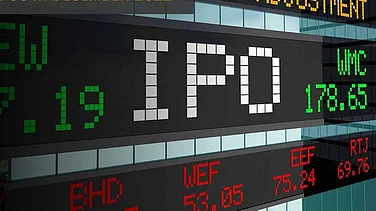Bangladesh, now the epicenter of student protests, will soon have an interim government headed by Nobel laureate Muhammad Yunus. The decision was taken by Bangladesh President Mohammed Shahabuddin. The interim government will be backed by the Bangladeshi military.
On July 5, Sheikh Hasina quit as the Prime Minister of Bangladesh and she fled the country in a helicopter along with her sister Sheikh Rehana following massive protests in the country. The student protests in the neighboring country started as a protest against the controversial quota system in the country.
Under the quota system, families of veterans who served in the 1971 Liberation War were granted a 30 per cent reservation in the civil services. The protest, which started peacefully in early June, soon turned violent. As per local media reports, since July 16, around 400 people lost their lives in the protests.
With chances of the neighboring country abandoning democracy for military rule, the question arises: How will this impact the relationship between India and Bangladesh? Will it have any effect on the Indian economy?
Immediately after the removal of Hasina, Bangladesh President Mohammed Shahabuddin ordered the release of former Prime Minister of Bangladesh Khaleda Zia from jail.
Zia, who was sentenced to 17 years in prison in 2018 on charges of corruption, is known for her anti-India stand. Zia, who served as the Prime Minister of Bangladesh from March 1991 to March 1996 and again from June 2001 to October 2006, is the chief of the Bangladesh National Party (BNP), the main opposition party. The BNP has, for a very long time, focused on its anti-India stand. In its election campaign, the party used the “India Out” campaign to focus on boycotting Indian goods. Zia's involvement in the interim government is unknown to us as of now but it will surely not be a good news for India.
Bangladesh Economy Could be Severely Affected, say Experts
The total bilateral trade between India and Bangladesh for FY 2022-23 was $15.9 billion. In FY24, India's exports to Bangladesh fell to $11 billion from $12.21 billion the previous year and imports dropped to $1.84 billion from $2 billion.
Bangladesh is India's largest trade partner in South Asia, while India ranks as Bangladesh's second largest trade partner in Asia. “The key concern is that with the imposition of military rule and the breakdown of the rule of law in Bangladesh, as observed recently, the economy may be adversely affected. Historically, when such situations arise in any country, their economy tends to decline,” says Biswajeet Dhar, a retired professor at the Centre for Economic Studies and Planning at Jawaharlal Nehru University (JNU) and an economist.
The collapse of Myanmar’s economy amidst its military rules is one such example. Since 2021, Myanmar's currency kyat reportedly fell to almost 70 per cent against the dollar. Along with rising inflation, the forecast for the growth of the economy is just at 1 per cent in the year ending March 2025, as per the World Bank.
Dhar added that political unrest in Bangladesh is creating uncertainty for exporters, pushing them to find new markets.
If Bangladesh’s textile industry is severely affected, India might struggle to fill the gap, especially as South East Asian countries advance and China dominates the garment sector, he says. As per the Observers Research Foundation, due to the increasing cost of production in China, several Chinese garment makers are shifting their production bases to Bangladesh.
Meanwhile, Indian exporters have mentioned that the political instability in Bangladesh might lead to an increase in orders for them. Mithileshwar Thakur, secretary general of the Apparel Export Promotion Council (AEPC), told PTI that while the Indian garment industry is working hard to boost its exports on its own merits, it is probable that in the short term, garment orders may be redirected to India. The Indian apparel sector might need to address the gap caused by this significant disruption.
However, some feel that the military rule will not have any impact on India. “Bangladesh does not figure as one of India’s important trade partners, owing to the small size of its market and the fact that the two economies largely produce a common set of goods,” says Rajeev Anantram, professor, International Management Institute, New Delhi.
S&P Global Ratings also stated on August 6 that India is a well-diversified exporter and that a hiccup in its shipments to Bangladesh is unlikely to have a significant effect on India's overall trade position for the entire year.
Will Bangladesh Become Closer to China?
A fear that experts have is that the new government might increase its focus on China and not India.
China is already making inroads into Bangladesh through various infrastructure projects, and the current political vacuum could give China more opportunities to expand its presence, Dhar points out.
Bangladesh is already a part of the China's Belt and Road Initiative (BRI), a global infrastructure project. India did not participate in the BRI initiative as a part of the project passes through Pakistan-occupied Kashmir.
The possibility that China may up the ante and seize a strategic advantage in Bangladesh following Hasina’s departure is something that the Indian political leadership should find deeply worrying, says Anataram.
Bangladesh has also requested China to make investments for the development of the southern part of Bangladesh. To add to it, Bangladesh is in talks to raise $5 billion from China.
Bangladesh reportedly imports over 10 times more from China than it exports, heavily straining the country's reserves.
Another concern raised by experts has been the possibility of an influx of illegal migration from Bangladesh to India. Due to the current unrest, the Manipur government has put a check on its border, as per a PTI report. The Border Security Force (BSF) has put its posts on high alert in the border area.
The positive developments in Bangladesh, particularly in job creation, could suffer, potentially leading to a resurgence of illegal migration. While it is difficult to quantify the exact increase in illegal migration, the possibility alone could alter economic and political dynamics, says Dhar of JNU. The then Minister of State for Home Affairs Sriprakash Jaiswal said in 2004 that the country had 12 million illegal Bangladeshi migrants.
With the neighboring country going through a political crisis, the Indian government is observing the situation keenly. Recently, External Affairs Minister S Jaishankar reportedly said in the Parliament, "I seek the understanding and support of the House in regard to sensitive issues regarding an important neighbour on which there has always been strong national consensus."
































